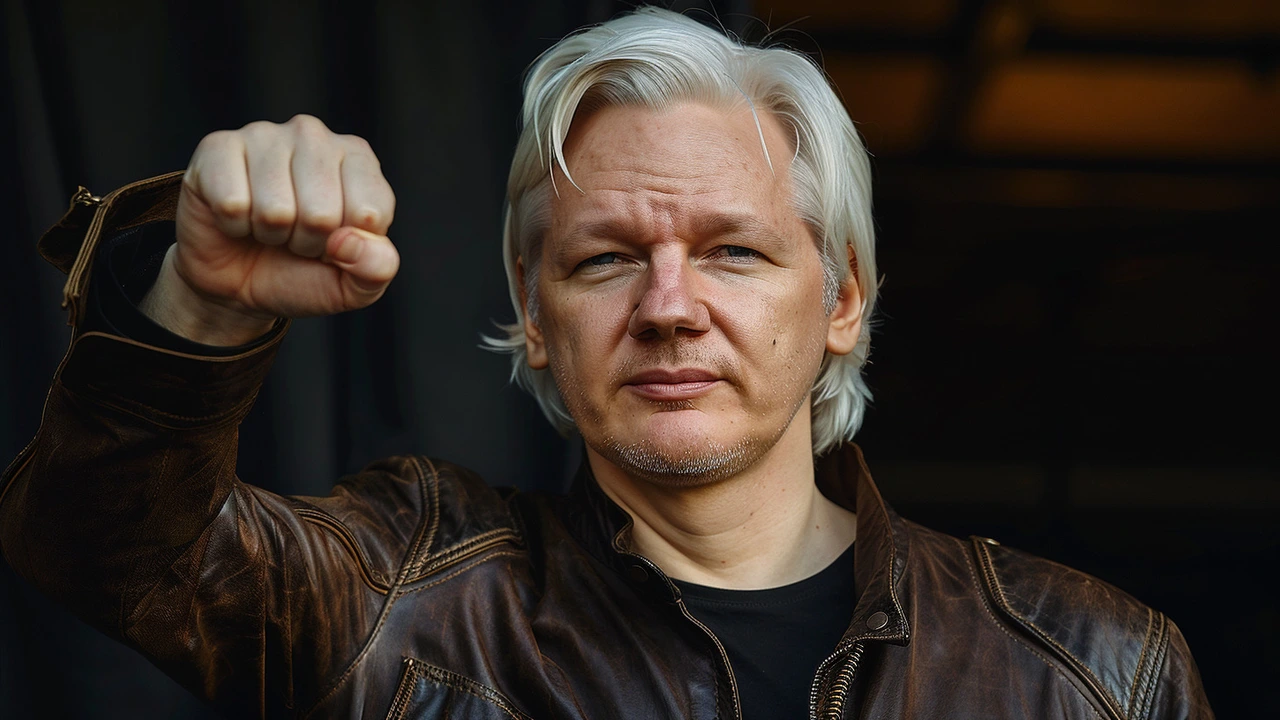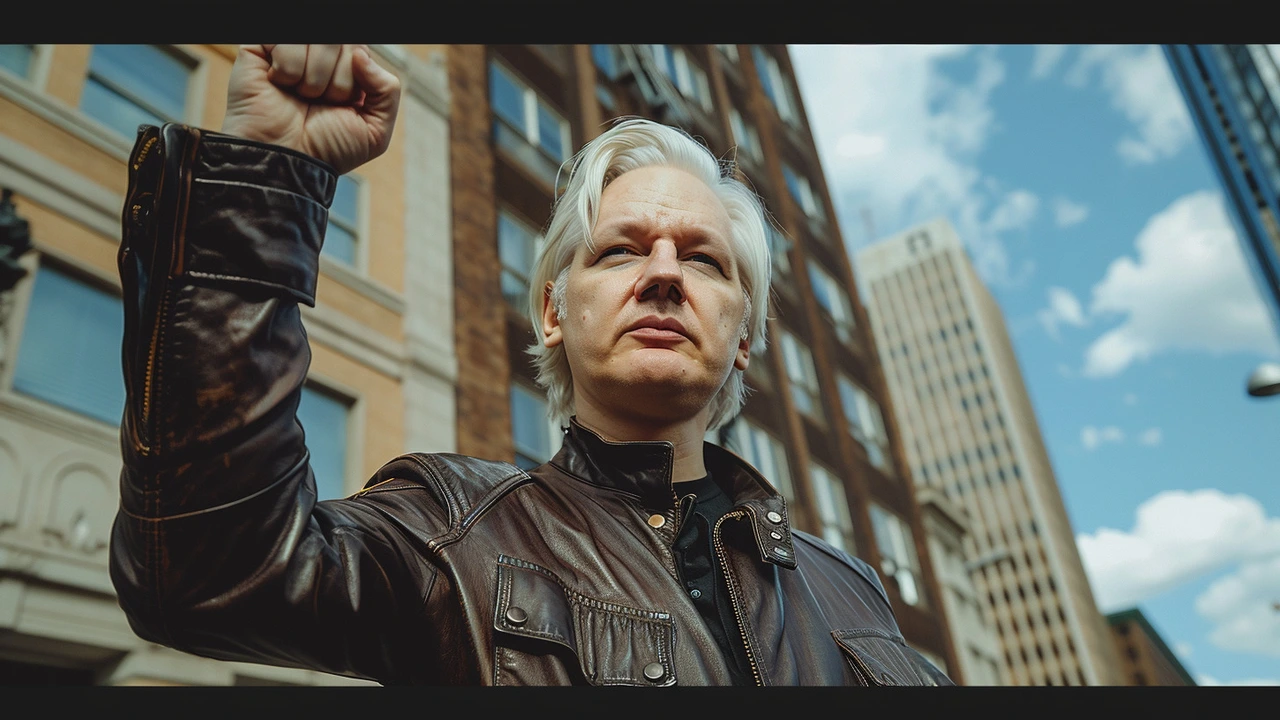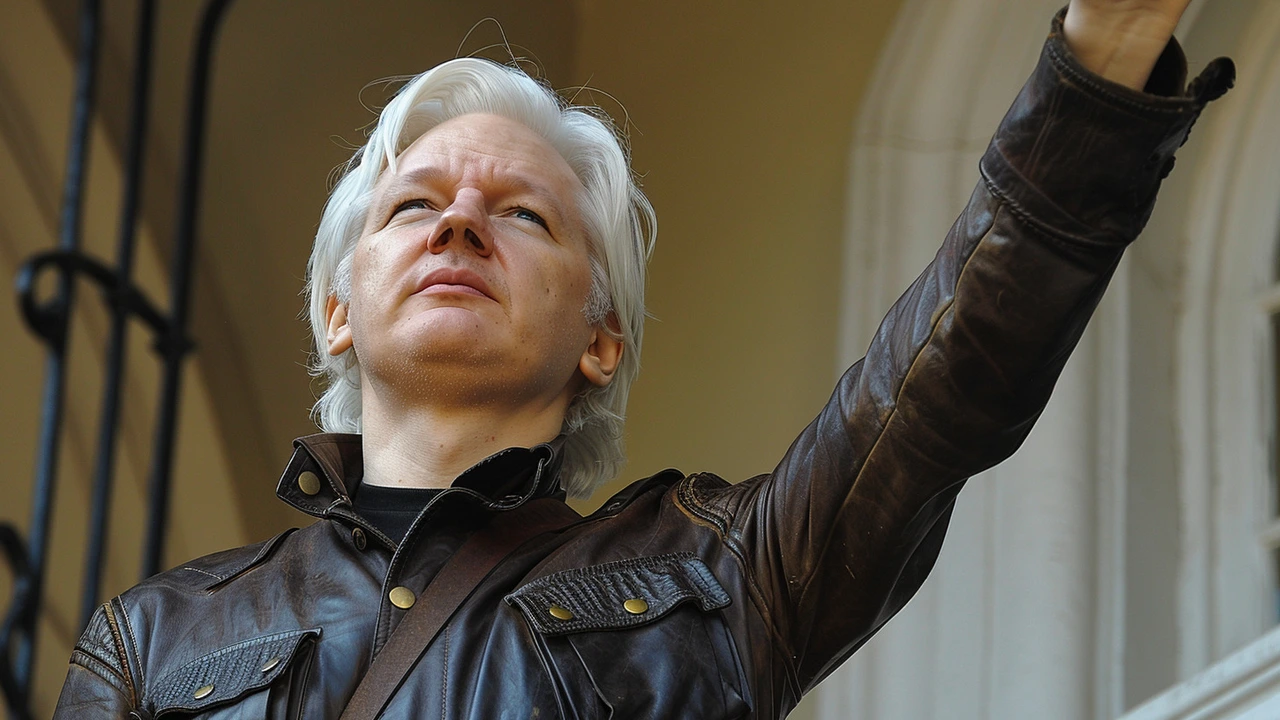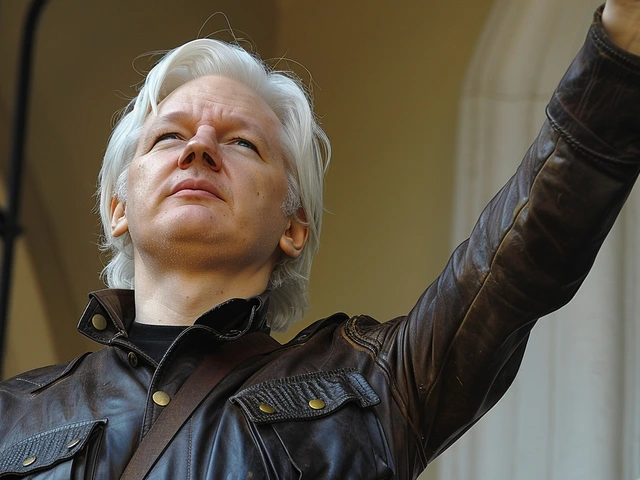The Early Life and Introduction to Programming
Julian Assange was born in July 1971 in Townsville, Australia. His parents were deeply involved in the theatre, which sparked a creative environment during his upbringing. From a young age, Assange displayed a remarkable proficiency with computers, quickly gaining a reputation as a talented programmer. His early interaction with technology laid the foundation for what would later become a significant aspect of his career.
At just the age of 16, Assange began hacking under the pseudonym 'Mendax.' He was part of a group known as the 'International Subversives' and quickly attracted attention for his skills. However, in 1995, his activities caught up with him, and he was fined for hacking. Lucky to avoid prison, Assange received a warning: refrain from further offences. This incident did little to deter his passion for exposing hidden truths through digital means.
Founding WikiLeaks
In 2006, Assange took a revolutionary step by founding WikiLeaks, an internet-based platform designed to publish classified and sensitive information provided by anonymous sources. WikiLeaks' mission was to promote transparency and accountability, often targeting governments and powerful entities. The platform soon became a lightning rod for controversy and attention.
One of the earliest and most significant leaks came in April 2010 when WikiLeaks released a video titled 'Collateral Murder.' The video depicted a US military helicopter attack in Iraq and resulted in the death of multiple individuals, including two Reuters journalists. The public and media outcry was immediate and substantial, marking the beginning of Assange's prominent role as a whistleblower.
The Afghanistan War Logs and US Reaction
Only a few months later, in July 2010, WikiLeaks released the 'Afghanistan War Logs,' a collection of over 91,000 documents detailing the war in Afghanistan. These documents revealed previously undisclosed information about civilian casualties and the actions of coalition forces. The release of the war logs intensified scrutiny on Assange and WikiLeaks by several governments, particularly the United States.
The US government began considering legal actions against Assange, culminating in 2017 when then-CIA director Mike Pompeo described WikiLeaks as a 'non-state hostile intelligence service.' This characterization underscored the serious nature of the US's stance against Assange and his activities.

Legal Troubles in Sweden
Amid his rising notoriety, Assange faced personal legal problems. In August 2010, Swedish prosecutors issued an arrest warrant for him based on allegations of rape and molestation. Although the initial warrant was withdrawn due to insufficient evidence, it was soon reinstated, prompting Assange to leave Sweden for the UK.
In November 2010, Assange was arrested in the UK but was granted bail shortly thereafter. However, in February 2011, a London court ruled in favor of his extradition to Sweden, a decision he immediately appealed. This legal battle marked a critical juncture in Assange's life, eventually leading him to seek refuge in an unusual and symbolic place.
Political Asylum in the Ecuadorian Embassy
With his appeals exhausted, Assange sought political asylum at the Ecuadorian embassy in London in June 2012. The embassy served as a sanctuary from extradition, and Assange would remain confined within its walls for nearly seven years. His stay at the embassy became a focal point of international attention, symbolizing the ongoing clash between WikiLeaks and the governments seeking to prosecute him.
During his time in the embassy, Assange continued to work with WikiLeaks and released various documents that stirred global debates. The strain of this peculiar life, coupled with persistent legal threats, took a toll on Assange's health and well-being.
The Arrest and Extradition Request
In April 2019, the delicate balance of his situation was disrupted when Ecuador withdrew his asylum status, leading to his arrest by British authorities. Assange was quickly sentenced to 50 weeks in prison for breaching his bail conditions. Nevertheless, his immediate concern was the looming threat of extradition to the United States.
In May 2019, the US formally requested Assange's extradition, specifically on charges of conspiring to commit computer intrusion alongside Chelsea Manning in the 2010 leaks. This marked the beginning of a new chapter in Assange's legal saga, one fraught with uncertainty regarding his future and the broader implications for press freedom.

The Larger Implications and Public Opinion
Julian Assange's story is not only about one man's fight against legal systems but also hinged on broader questions about freedom of speech, government transparency, and the role of journalism in the digital age. His supporters view him as a hero who has exposed wrongdoing and championed the public's right to know. Conversely, his detractors label him a criminal who has endangered lives by releasing sensitive information.
The debate surrounding Assange is a microcosm of larger societal tensions. On one side are those advocating for greater openness and accountability from powerful entities. On the other side are those who argue that certain secrets are necessary for national security and public safety. This clash embodies the complex and often contradictory values at play in modern democracies.
The Human Side of the Saga
Beyond the legal and philosophical issues, there is also a deeply human aspect to Assange's situation. Living in the confined quarters of the Ecuadorian embassy and later facing incarceration has undoubtedly impacted his mental and physical health. His relationships with family and friends have been strained, and the constant scrutiny from media and authorities has added to the pressure.
Despite these challenges, Assange has continued to express his belief in the importance of transparency and the role of WikiLeaks. His resilience and determination have made him a polarizing figure, admired by some and vilified by others, but unquestionably one who has left an indelible mark on the world.
The Path Forward
Now that Assange has been released, the story is far from over. The legal battles and public debates will likely continue, particularly as discussions about the balance between national security and freedom of speech remain unresolved. Assange's case could set precedents that affect future whistleblowers, journalists, and activists worldwide.
As Assange reintegrates into society, his next steps will be closely watched by both supporters and critics. Will he continue his work with WikiLeaks, or will the years of legal strife lead him to a different path? Only time will tell, but what is certain is that Julian Assange's name will remain synonymous with the ongoing struggle for transparency and accountability in an increasingly complex world.


suresh sankati
June 26, 2024 AT 21:12So Assange got released and now we’re all supposed to throw confetti? 😅 The same guy who handed over military intel like it was a Spotify playlist. If this is journalism, then my cousin’s TikTok rants are Pulitzer material.
Pooja Kri
June 28, 2024 AT 09:36The legal framework around whistleblowing is deeply fragmented across jurisdictions and the conflation of espionage with investigative journalism creates a dangerous precedent. The CFAA is not designed for this scale of data dissemination and the precedent set here could erode constitutional protections for media entities if not carefully adjudicated.
Sanjeev Kumar
June 29, 2024 AT 05:25We build empires on secrets and then call anyone who cracks the vault a villain. Assange didn’t invent truth-he just held up a mirror. The real crime isn’t leaking documents. It’s that we still pretend we didn’t already know. The machines are watching. The papers are redacted. The silence? That’s the real conspiracy.
He’s not a hero. He’s not a criminal. He’s the symptom. The question isn’t what he did. It’s why we built a world where this was the only way to be heard.
Hemlata Arora
July 1, 2024 AT 01:54It is deeply concerning that such a figure, who has demonstrably compromised national security protocols and endangered the lives of confidential informants, is being romanticized as a martyr for free speech. The rule of law must prevail over populist narratives that glorify unlawful conduct under the guise of transparency.
manohar jha
July 1, 2024 AT 05:34Man, I grew up in a village where the only secrets were who stole the mangoes from the neighbor’s tree. Now we got whole governments hiding stuff behind firewalls and calling it 'national security.' I don’t know if Assange’s right or wrong-but I do know I wanna know what’s really going on. Pass the chai and the truth, yaar.